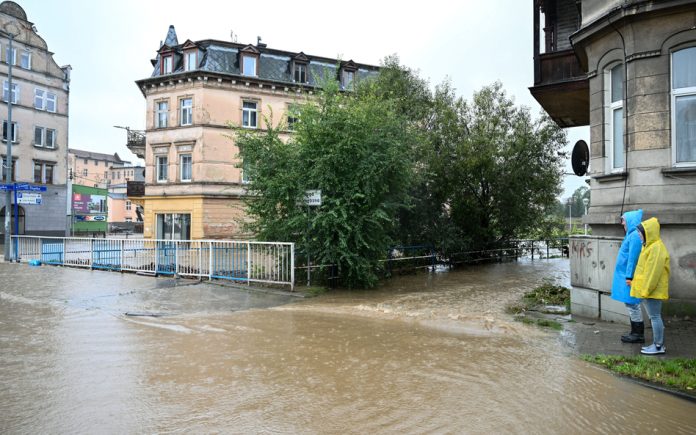The flooding of the Danube River was a terrifying event, and the clean-up had just begun, The New European reports.
People gathered by the Danube River in Bratislava’s central neighbourhood witnessed a striking change.
Just a few days ago, they were enjoying sunshine and warmth; then the temperature plummeted, Storm Boris struck, and it began to rain. The Danube, Europe’s second largest river, began to rise.
In the days leading up to the storm, the Danube was about three metres deep. A few days later, its level rose to almost 10 metres, flooding parts of Bratislava. Fortunately, our flood defences held. However, the rain and the wind, which reached speeds of almost 100 kilometres per hour, caused multi-million dollar damage.
In Bratislava, the water has not yet receded and Hungary is preparing for the worst as the storm surge heads south.
Prime Minister Robert Fico made his first public appearance in the days after the storm. Michal Sabo, an opposition MP who speaks on environmental policy, criticised Fico’s belated response. He said:
“I understand he celebrated his birthday over the weekend. To the detriment of all those involved, he left crisis communication to two ministers.”
He also criticised the lack of climate laws in Slovakia.
Strong winds and heavy rain raged in Austria, the Czech Republic, Hungary, Romania and Slovakia. Storm Boris has caused the deaths of at least six people, with thousands of Europeans forced to leave their homes. As of Wednesday, more than 20 people had died. Others are still missing. Nearly two million people have been affected by the floods, the worst in two decades, according to The New European.
The Austrian state of Lower Austria, bordering Bratislava, has been particularly hard hit. Heavy rains washed snow off the mountains, which combined with snow and wind to bring torrents of water down into the valleys.
According to the Vienna Waterways Administration, the extreme precipitation caused flooding, which occurs once every 1,000 years. Lower Austria and Vienna have been declared disaster zones.
Parts of northern Austria have been declared a disaster zone. Up to a metre of snow has fallen in parts of Tyrol – an exceptional situation for mid-September. As recently as last week, temperatures in these areas reached 30C Celsius. One firefighter was killed in a rescue operation in Austria. Rail services in the east of the country were suspended on Sunday and several metro lines were closed in Vienna, where the river of the same name has overflowed its banks, The New European reports.
The Czech government has been in crisis mode since last week. The water has forced thousands of people to evacuate their homes, left hundreds of thousands without electricity and flooded several towns. Four people have died so far. Josef Bjelica, governor of the hardest-hit region of Moravia-Silesia, has estimated the damage at more than €1bn in his region alone.
On the other side of the Czech border in Poland is the town of Stronie-Sląskie in Lower Silesia, where a dam burst, causing severe damage. Deputy Mayor Lech Kawecki, quoted by Polish news broadcaster TVN24, estimated the damage in that town alone at more than a billion Polish zlotys (about 250 million euros).
In the hardest-hit areas, three to four months’ worth of rainfall fell in just a couple of days. In the Czech Republic, in the Jeseníky mountains in northern Moravia and Silesia, more than 500 litres per square metre fell in five days – equivalent to more than eight months’ worth of rainfall.
It was a terrifying experience, and the clean-up had only just begun.
